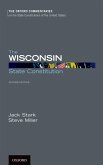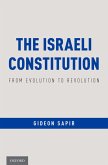The first comprehensive examination of the US Constitution's Ex Post Facto Clause, surveying its history and the critical role it can and should play in combatting the punitive tendencies of American legislatures. The Ex Post Facto Clause, one of the few civil liberty protections found in the body of the US Constitution, reflects the Framers' acute concern over the tendency of legislatures to enact burdensome retroactive laws targeting unpopular individuals. Over time, a broad array of Americans have invoked the protective cloak of the Clause, including Confederate sympathizers in the late 1860s; immigrants in the early 1900s; Communist Party members in the 1950s; and, since the 1990s, convicted sex offenders. Although the Supreme Court enforced the Clause with vigor during the first several decades of the nation's history, of late the justices have been less than zealous defenders of the security it was intended to provide. And, even more problematic, they have done so amid major changes in the nation's social, political, and institutional life that have made the protections of the Ex Post Facto Clause all the more important.
The Ex Post Facto Clause provides the first book-length examination of the history of the Clause and its potential for tempering the punitive impulses of modern American legislatures. Wayne A. Logan chronicles and critiques the evolving treatment of ex post facto claims by the Supreme Court, which has created a body of law that is both at odds with the Framers' intent and ill-suited to the unforgiving and harshly punitive nation that America has become. Drawing on Framing Era history, seminal Supreme Court decisions, and the global embrace of the values underlying the Ex Post Facto Clause, Logan provides a blueprint for how the Clause can play a reinvigorated and more robust role in guarding against the penal populism besetting modern American legislatures.
Dieser Download kann aus rechtlichen Gründen nur mit Rechnungsadresse in A, B, BG, CY, CZ, D, DK, EW, E, FIN, F, GR, HR, H, IRL, I, LT, L, LR, M, NL, PL, P, R, S, SLO, SK ausgeliefert werden.
Hinweis: Dieser Artikel kann nur an eine deutsche Lieferadresse ausgeliefert werden.









